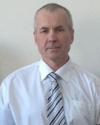References
1. Federal'nyy gosudarstvennyy obrazovatel'nyy standart obshchego obrazovaniya // Rossiyskaya gazeta. 2013. № 265.
2. Pis'mo Ministerstva obrazovaniya i nauki Rossiyskoy Federatsii «Ob organizatsii vneurochnoy deyatel'nosti pri vvedenii Federal'nogo gosudarstvennogo obrazovatel'nogo standarta obshchego obrazovaniya». M., 2011. S. 2–6.
3. Viner I. A. O novom soderzhanii uroka fizicheskoy kul'tury // Fizicheskaya kul'tura v shkole. 2012. № 3. S. 40–46.
4. Volkov P. B., Volkova S. A., Reva A. P. Sportivnaya napravlennost' v vospitatel'noy rabote s yunymi atletami 10–12-letnego vozrasta v sisteme dopolnitel'nogo obrazovaniya // Mezhdunarodnaya nauchno-prakticheskaya konferentsiya «Rol' nauki v razvitii obshchestva». Ufa, 2015. S. 131–132.
5. Volkov P. B. Sovershenstvovanie organizatsii massovoy fizkul'turno-sportivnoy raboty s det'mi i podrostkami v usloviyakh zagorodnogo ozdorovitel'nogo lagerya // Sovremennye problemy nauki i obrazovaniya. 2017. № 1. S. 92.
6. Volkov P. B. Igrovye tekhnologii kak sredstvo i metod v razvitii gibkosti pozvonochnika i koordinatsii dvizheniy detey i podrostkov na sportivnykh zanyatiyakh v zagorodnykh ozdorovitel'nykh lageryakh // Pedagogika. Psikhologiya i mediko-biologicheskie problemy fizicheskogo vospitaniya i sporta. 2018. № 1.
7. Grigor'ev V. I., Davidenko D. N. Fizicheskaya kul'tura i sport: sotsiokul'turnye osnovy. SPb., 2008. 91 s.
8. Grigor'ev D. V. Vneurochnaya deyatel'nost' shkol'nikov. Metodicheskiy konstruktor. M., 2011. 233 s.
9. Davydov V. Yu. Novye fitness-sistemy. Volgograd, 2005. 287 s.
10. Dement'ev K. N., Zashchirinskaya O. V., Pristav O. V. Vozmozhnosti ispol'zovaniya fitnes-tekhnologiy v sisteme spetsial'nogo i inklyuzivnogo obrazovaniya detey // Teoriya i praktika fizicheskoy kul'tury. 2016. № 7. S. 41−43.
11. Kutsaev V. V. Kak uchit' fizicheskoy kul'ture v shkole // Fizicheskaya kul'tura v shkole. 2013. № 7. S. 4–7.
12. Lyakh V. I. Orientiry perestroyki fizicheskogo vospitaniya v obshcheobrazovatel'noy shkole // Teoriya i praktika fizicheskoy kul'tury. 2009. № 9. S. 10–14.
13. Medvedev I. A. Profil'noe obuchenie po fizicheskoy kul'ture na starshey stupeni obshcheobrazovatel'noy shkoly // Teoriya i praktika fizicheskoy kul'tury. 2007. № 7. S. 59–60.
14. Mikhaylova E. L. Fizkul'turnoe obrazovanie starshikh shkol'nikov sredstvami integrirovannykh form urokov fizkul'tury // Fizicheskaya kul'tura: vospitanie, obrazovanie, trenirovka. 2016. № 6. S. 47–51.
15. Ponomarev G. N., Saykina E. G., Loseva N. A. Fitnes-tekhnologii kak put' povysheniya interesa i effektivnosti uroka fizicheskoy kul'tury v shkole // Teoriya i praktika fizicheskoy kul'tury. 2011. № 8. S. 55–60.
16. Reva A. P. Psikhofizicheskoe razvitie shkol'nikov 12–13-letnego vozrasta, zanimayushchikhsya v sportivnoy sektsii // Mezhdunarodnaya nauchno-prakticheskaya konferentsiya «Nauka i obrazovanie na sovremennom etape razvitiya: opyt, problemy i puti ikh resheniya». Nizhnekamsk, 2017. S. 680−683.
17. Rudyakova I. V. Vliyanie zanyatiy fitnes-tekhnologiyami na sostoyanie zdorov'ya zanimayushchikhsya // Trudy molodykh uchenykh Altayskogo gosudarstvennogo universiteta. Barnaul, 2015. Tom 1. Vyp. 12. S. 193–196 .
18. Smirnov D. V. Programmy dlya sistemy dopolnitel'nogo obrazovaniya detey. M., 2011.
19. Smirnov N. K. Zdorov'esberegayushchie obrazovatel'nye tekhnologii v sovremennoy shkole. M., 2002. S. 62.
20. Filimonova S. I., Korol'kov A. N., Stolov I. I., Sabirova I. A. Organizatsiya prostranstva fizicheskoy kul'tury i sporta. Novoe osmyslenie // Kul'tura fizicheskaya i zdorov'e. 2016. № 3. S. 53–57.
21. Shchetinina S. Yu. Sotsial'no-pedagogicheskie faktory fizkul'turno-sportivnoy sredy, sposobstvuyushchie povysheniyu effektivnosti fizicheskogo vospitaniya v obshcheobrazovatel'noy shkole // Uchenye zapiski universiteta imeni P. F. Lesgafta, 2012. № 6 (88). S. 133–139.
22. Nagovitsyn R. S., Volkov R. B., Miroshnichenko A. A. Planning of physical load of annual cycle of students’, practicing cyclic kinds of sports, training // Physical Education of Students. 2017. Vol. 21. № 3. P. 126–133.
23. Nagovitsyn R. S., Volkov P. B., Miroshnichenko A. A., Tutolmin A. A., Senator S. Yu. The influence of special graduated weight bearing in Greco-Roman wrestling on the growth of students sports results // Physical Education of Students. 2017. Vol. 21. № 6. P. 78–93.
24. Nagovitsyn R. S., Vladykina I. V., Volkov P. B., Tutolmin A. V., Sokolnikova E. I. Program management of improvement of physical education of students using mobile methods // Theory and Practice of Physical Culture. 2015. № 4. S. 10.












